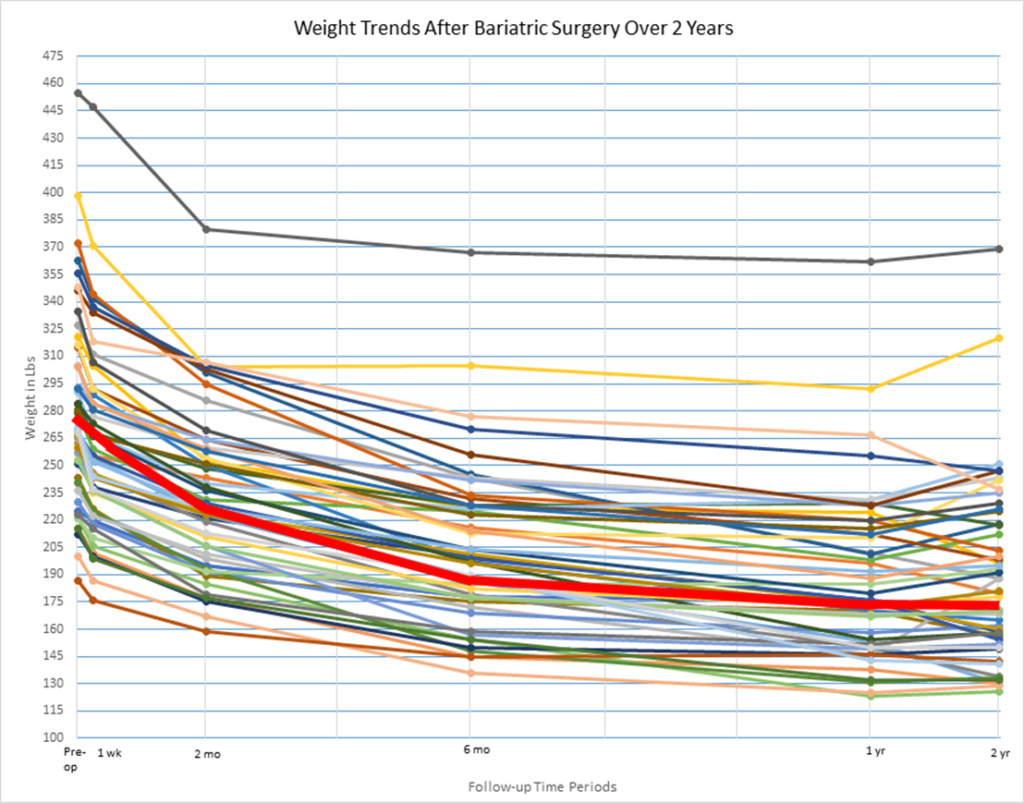Bariatric Support Group
Date: October 6, 2016
Facilitator: Whitney Venegoni, NP
Nurse Practitioner, Whitney Venegoni, began with a short presentation on the 3 main macronutrients the body needs to remain healthy – Proteins, Carbohydrates and Lipids (Fats).
She started with protein, which is always stressed. She talked about how important protein is for your muscles and your body organs, and that they have a lot of jobs to do:
- Some provide enzymes that are necessary for your body reactions
- Some are hormones, such as insulin, that regulate metabolism
- Some make antibodies to keep us from getting certain diseases
- Some transport vitamins and minerals into your cells
- And some are structural, making up collagen, bone, skin, teeth, tendons, cartilage, blood vessels, hair and muscle
In order to prevent your body from using muscle as energy, you need to eat protein to keep building strong muscles.
Carbohydrates are important to provide the body energy, and the body will use carbs as energy first. They are easiest macronutrient for the body to digest and absorb, but the refined carbohydrates, such as refined and processed food, cause the blood sugar to go up rapidly. This causes the body to increase the insulin that is released, and insulin causes the body to store fat, so you want to eat complex carbohydrates that digest more slowly, and keep your intake of carbs low. That leads to decreased insulin release, which then leads to fat breakdown.
Lipids (fats) is how we store energy that we don’t use up. Fat is made up of cells called adipocytes, which are storage sites for triglycerides. We need some fat in our diets to absorb fat soluble vitamins. It also slows emptying of the stomach and helps with digestion. Fat stores are the body’s second choice for energy. So if you keep your carb intake low, your body will break down the fat in the body to use as energy, which helps you lose weight.
Discussion then occurred on the topic of the “weight loss curve”. It was stressed that it is easiest to lose weight in the first 1 to 1 ½ years. After that, your body begins to resist losing weight. When we look at the trend in weight loss of our patients, we see that 70% of the weight loss comes in the first 6 months, and then the last 30% comes in the next 6 – 9 months. Initially the average weight loss in the first 2 months, walking 30 minutes a day, is 1 pound every 2 days. Then if you increase your activity to 60 minutes a day that can be increased to 2 lbs every 3 days. If we don’t see that you are losing weight in that first 2 – 4 months at that rate, it is beneficial to intervene early on to increase that weight loss so you are able to take advantage of the “honeymoon” period to get 70% of your weight off in that first 6 months. There are medications that we can use after surgery to increase your metabolism, or you can increase it by increasing the intensity of the activity you are doing. Weight training and building muscle is a great way to do that. Activity needs to become a part of your new lifestyle so you can continue to lose weight and then maintain your weight. If you do it every day for 18 months, it will become a new habit and you will be able to continue to do it daily.
Greg Justice, the exercise physiologist that does support groups with us occasionally, does High Intensity Interval Training, which helps with that. Katherine Caddell from Element Fitness on 79th and Quivira also was present and spoke about the training they do at their gym to help with that. We have a number of patients who use that gym and really like it. Katherine brought One Week Free handouts to folks can try it out for free for a week and see how they like it. They have water aerobics for those with painful joints, and personal trainers that can work with you to design a program for your goals.









